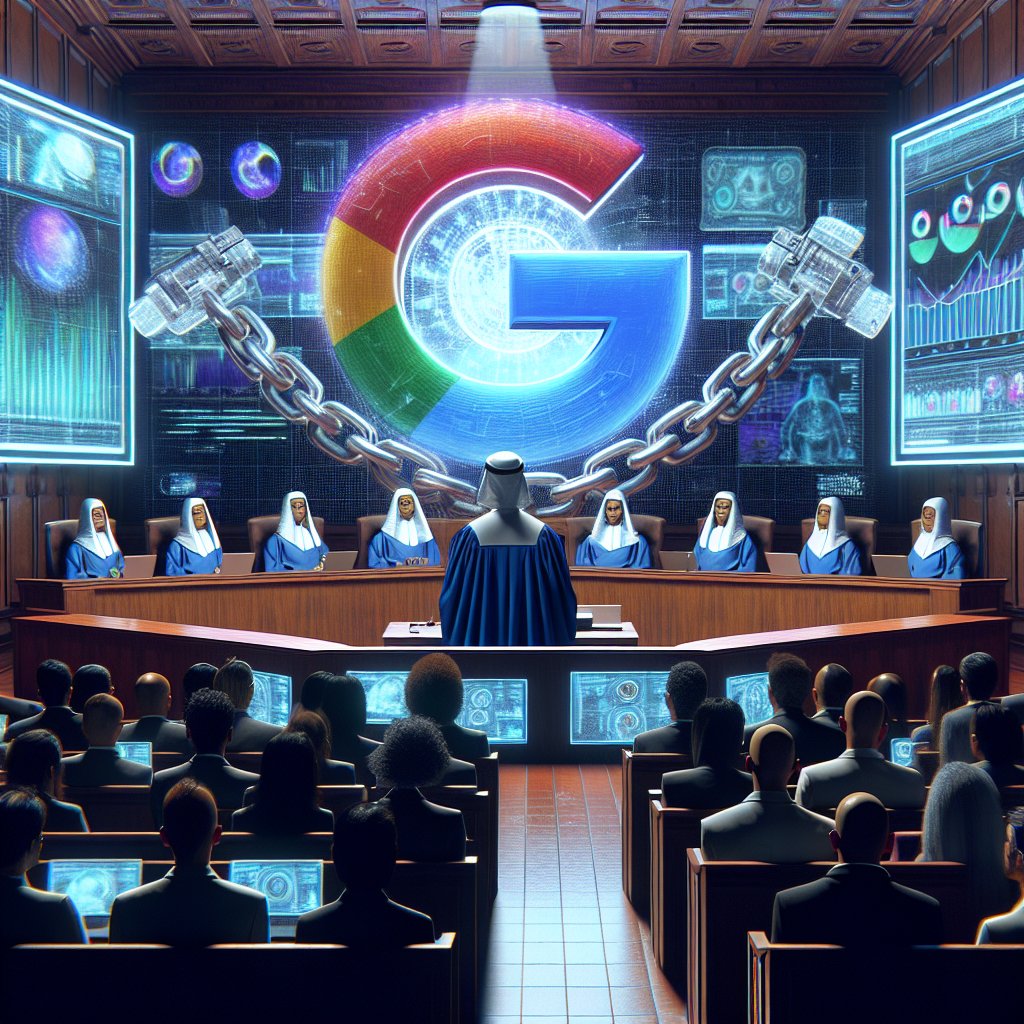Image created by AI
US Judge Rules Against Google in Landmark Antitrust Case, Cautions on Evidence Handling
In a decision that has sent ripples through Silicon Valley and the business world at large, US District Judge Amit Mehta, based in Washington, DC, has ruled that Google violated antitrust laws by using its financial muscle to maintain an illegal monopoly. The tech giant has been found to control an overwhelming share of the online search market, with approximately 90% of searches and 95% on smartphones. This verdict marks a significant victory for federal regulators emboldened to challenge the unchecked power of Big Tech companies.
The landmark ruling emerged amidst allegations of Google's failure to responsibly manage internal communications. Although Judge Mehta stopped short of applying formal sanctions for this misconduct, his condemnation of Google’s questionable handling of evidence, particularly its internal chat records, was severe. The judge’s decision not only underscores the anti-competitive practices deployed by Google but also sends a stark caution to other companies about the importance of evidence safeguards.
According to Judge Mehta's ruling, the court now moves towards a potentially consequential 'remedy phase', which could entail unprecedented outcomes such as breaking up the behemoth corporate structure of Google's parent entity, Alphabet Inc. This phase portends a thorough re-examination of Google’s dominant position in online advertising, a sector it has led for many years. The implications of this case could redefine the tenets of American antitrust law enforcement, with a particular focus on Big Tech's market practices.
Attorney-General Merrick Garland described the ruling as "historic" and affirmed that no entity, irrespective of its size and influence, can flaunt legal accountability. Echoing this sentiment, White House press secretary Karine Jean-Pierre hailed the decision as a win for competition and consumer choice on the internet.
The Department of Justice had produced evidence of Google’s systematic destruction of employee messages and inappropriate uses of attorney-client privileges to shield internal communication, which further complicated the case. Although Judge Mehta deemed it unnecessary to issue sanctions based on these discoveries for his determination of antitrust law violations, his annotative critique of Google’s deliberate avoidance in creating a paper trail for regulators and litigants was unmistakable.
The ramifications of Google's strategy in handling internal chats also surfaced in another lawsuit filed by Epic Games over Android app market controls. In addition, as the legal battles continue, a federal judge in Virginia will soon preside over arguments concerning Google’s alleged evidence destruction in a separate lawsuit concerning its digital advertising practices.
Google has announced its intention to appeal against the verdict and steadfastly denies any wrongdoing related to mishandling evidence or violating antitrust laws. The company’s longstanding practice of automatically deleting chat messages after 24 hours has been altered, signifying an acute acknowledgment of the need for heightened evidence conservation.
As the tech world awaits the unfolding of these historical events, it is clear that the outcome of these legal proceedings will have long-lasting implications for Google and the broader landscape of antitrust law enforcement.










